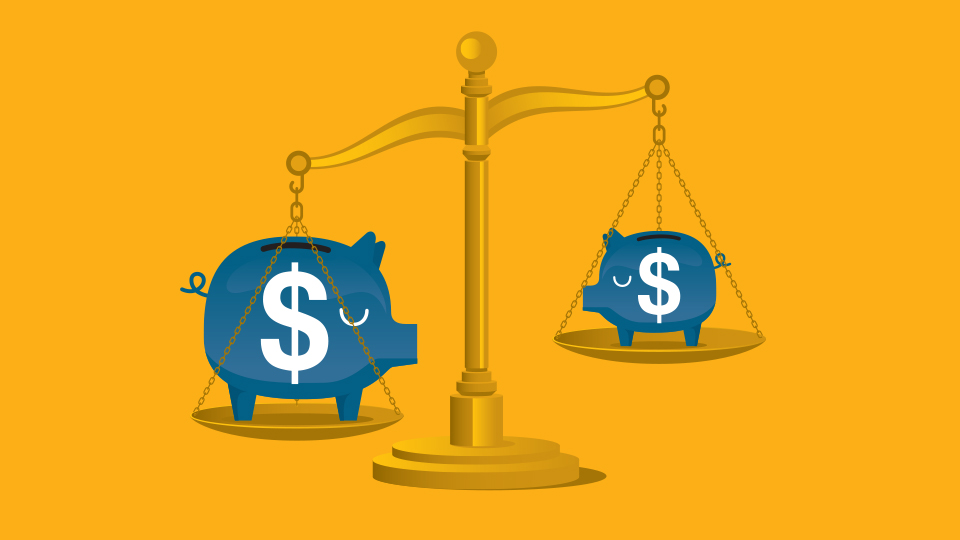Federal budget 2021: Key outcomes for tax, super, business
The Australian federal government’s 2021 budget placed investment and stimulus front and centre as it manages a post-pandemic economy recovery.
May 27, 2021

The Victorian state government’s 2021-22 budget focuses on investing in mental health, hospitals, infrastructure, creating jobs, and stimulating economic recovery post-pandemic.
Many of the state’s tax measures are focused on top-tier earners and highly profitable companies, which Victorian Treasurer Tim Pallas said would align with a tax system that is “fair and progressive” and ensure that “everyone pays their fair share to support Victoria’s economic recovery”.
The budget also includes some considerable tax changes for big businesses, as well as new measures for property-related taxes.
Read on for our summary of key outcomes of the Victorian 2021-22 budget and how it relates to business and other taxpayers, with a particular focus on significant changes in property taxes.
A number of changes to payroll tax include:
Big businesses will be hit with a new levy on payroll to help pay for the $3.8 billion funding for mental health services outlined in the Victorian state budget for 2021-22.
Businesses that have more than $10 million in national wages will pay the levy via a payroll surcharge for their Victorian employees.
Businesses will have to pay the 0.5 per cent increase on national wages that exceed the $10 million mark, and a further 0.5 per cent levy will also apply to every dollar spent on wages above $100 million.
The Mental Health and Wellbeing Levy will commence from January 1, 2022, and it is estimated to raise $843 million each financial year.
For property transactions worth more than $2 million, stamp duty will increase to $110,000 plus 6.5 per cent of the dutiable value that exceeds $2 million. This change is expected to impact less than four per cent of transactions.
Inner-city apartment builders will receive a boost to help sell unsold stock, with a full waiver on offer for units that are on the market for 12 months or more. The stamp duty concession applies to new residential property within the City of Melbourne local government area with a dutiable value up to $1 million.
A 50 per cent waiver for Melbourne properties that do not qualify will also be extended.
House builders will receive a pause on taxes for vacant residential land, which will be extended from one year to two years. Off-the-plan properties worth up to $1 million will get the tax break for one year only.
In a bid to support the apartment sector, which has come under considerable pressure, the government has stepped back on its intentions to restrict off-the-plan concessions with the dutiable threshold increased to $1 million for contracts entered into after July 1, 2021 and before June 30, 2023.
The threshold for the imposition of land tax will be increased from $250,000 to $300,000.
Land tax will then be increased for all investment property valued at more than $1.8 million from January 1, 2022. The lift in rates will be 0.25 per cent for properties between $1.8 million and $3 million, increasing the rate to 1.55 per cent, and by 0.30 per cent for properties over $3 million, increasing the rate to 2.55 per cent.
From July 1, 2022 the Victorian government will introduce a land tax targeted at private, gender-exclusive clubs, which were previously exempt. These clubs will be liable for land tax on their landholdings, bringing them in line with other private organisations. The concession is now only reserved for charities, clubs, and associations.
Property developers will be required to pay a windfall gains tax of up to 50 per cent on re-zoned land, which comes into effect from July 1, 2022.
“The total value uplift from a rezoning decision will be taxed at 50 per cent for windfalls above $500,000, with the tax phasing in from $100,000 – ensuring the vast majority of land holders will not be affected. Land subject to the Growth Areas Infrastructure Contribution will also not be affected,” the state government announcement said.
If you need help navigating any of these new tax incentives or if you’d like to find out more about how the Victorian budget will impact your personal or business finances, speak to one of our experts.
LDB has a team of trusted tax advisors, real estate and property specialists, and business advisory experts that can guide you on a range of matters. Simply give us a call on (03) 9875 2900 or fill in the contact form below.
The Australian federal government’s 2021 budget placed investment and stimulus front and centre as it manages a post-pandemic economy recovery.
Australia’s video game development industry has received a long-campaigned-for boost as part of the government’s Digital Economy Strategy.
The Victorian State Budget for 2020–21 is a big-spending bid to kick-start the economy following the impacts of COVID-19.

Our team is taking a short break, with the office closed from 4pm Thursday 19th December 2024, reopening on Monday 6th January 2025. The Property department will be available for urgent matters and will operate in a limited capacity between 2nd and 5th January.
